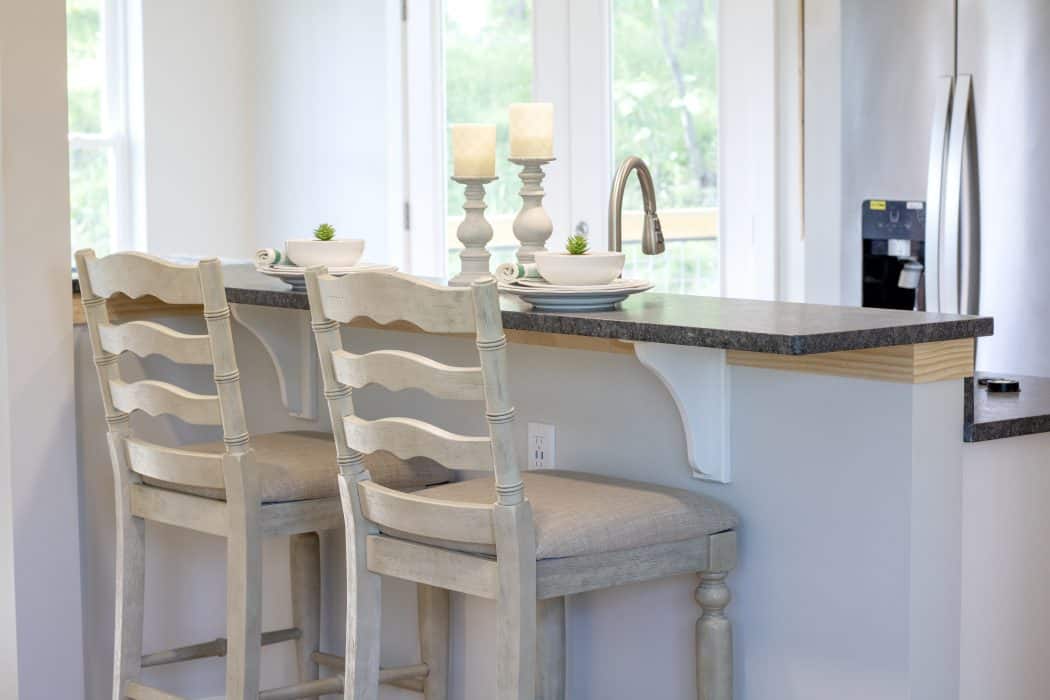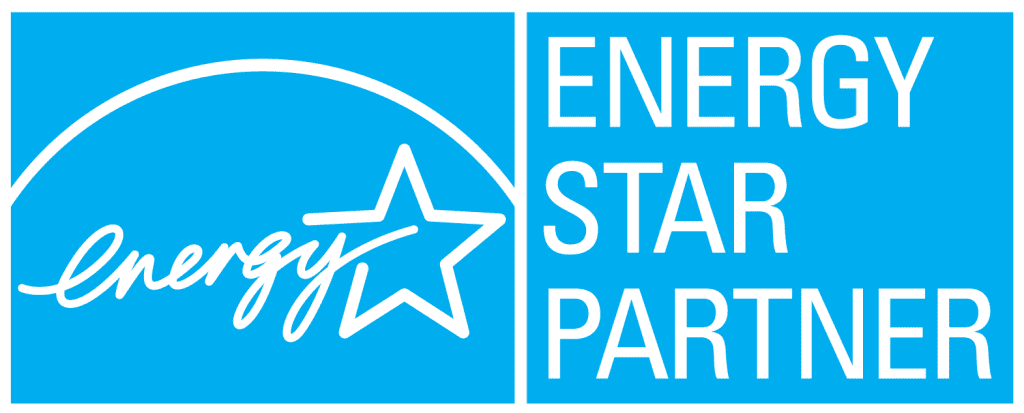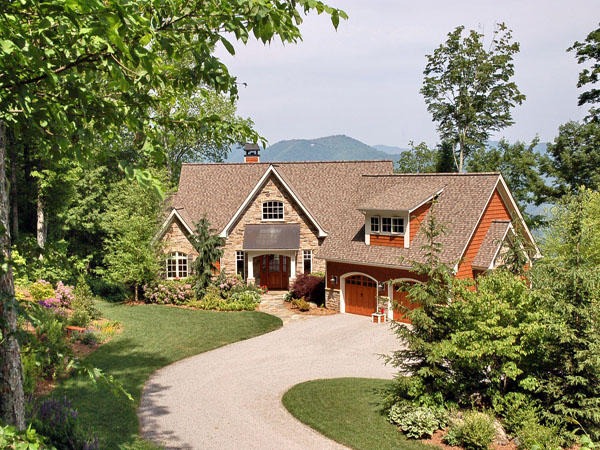
In part one of this post, we talked about why it’s a good idea to consider the resale value of your Asheville home before you build.
But what exactly does it look like to consider resale value before you start building? There are so many factors that affect a home’s value — how do you focus on the most important ones? And how do you make these predictions for a home that doesn’t even exist yet?
Here are three key considerations you can’t afford to overlook when it comes to your Asheville custom home’s resale value.
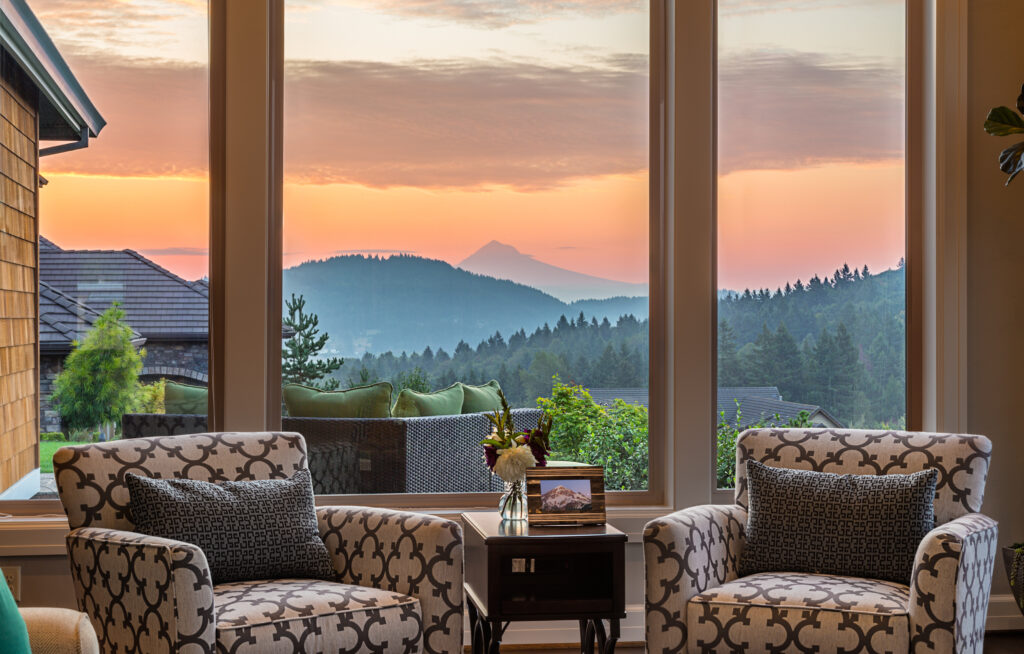
1. Make sure the location suits the build
You wouldn’t want a mansion in a trailer park or a tiny home in the Hollywood Hills because these builds are much less likely to appeal to the typical buyers in those areas. Even if your custom house will end up being the most expensive one in a neighborhood, try to keep it in the same ballpark. A pricey home surrounded by average ones will take much longer to sell, and it will sell for less than you want when it finally does.
In choosing a location, you should also be mindful of vacant lots nearby or any building restrictions that govern neighboring homes. If you’re going to spend a pretty penny on sweeping mountain views, ensure they won’t be blocked by an apartment complex or new addition to your neighbor’s home.
2. Allocate your budget evenly
That’s why you need to plan every aspect of your custom build from the beginning of your project. Don’t find yourself 90% complete and over budget. The last thing you want is to compromise on finishes which mean the most when it comes to resale value.
While you can and should spend more on the details that mean the most to you in your new Asheville custom home, you don’t want quality to vary wildly from one area to the next. Gleaming granite or quartz countertops just don’t pair well with linoleum, and cheap appliances won’t suit a sparkling new kitchen.
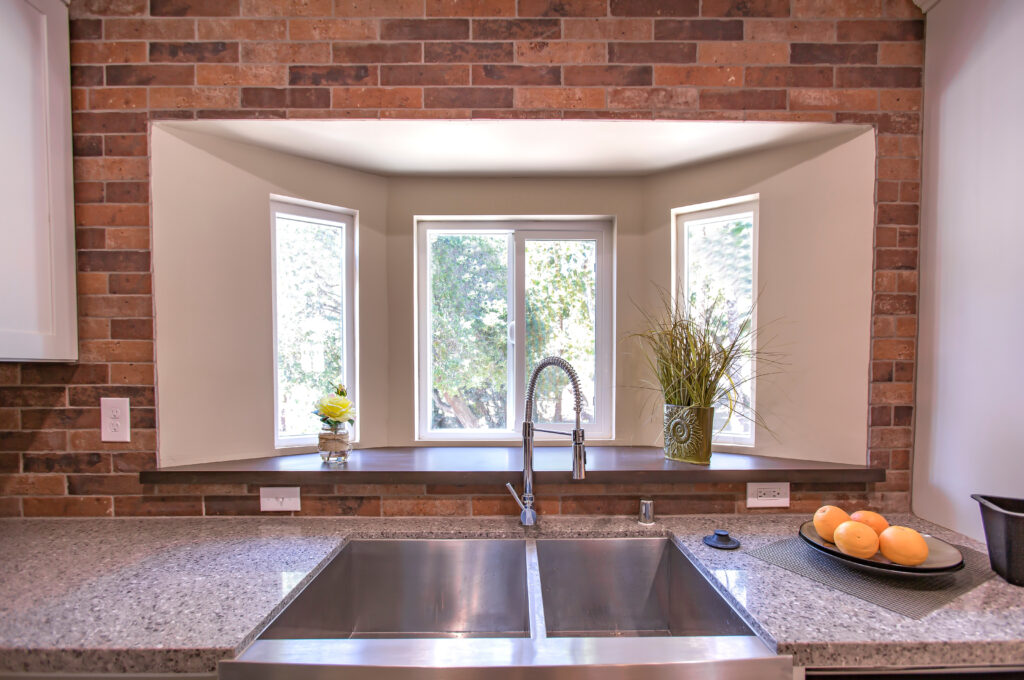
Before you start building, you’ll need to weigh the costs of site prep, foundation building, framing, major systems, and interior and exterior finishes. And that’s not to mention contractor fees and anything needed to cover general construction expenses. Any single part of these building costs can run away with you if you’re not careful. So, plan well to ensure the whole project comes together to make the home of your dreams — and someone else’s.
3. Asheville Custom Homes Prioritize Energy-efficient Features
We’ve reached the tipping point for consumer awareness in regard to sustainability. This is true across many sectors of the economy, including real estate. The National Association of Realtors’ 2021 Realtors and Sustainability Report for the residential market found that 65% of realtors indicated that promoting energy efficiency in home listings was “very or somewhat valuable.” Fifty-five percent of those same respondents found that their clients were at least somewhat interested in green home features.
According to Realtor Magazine, the top green features buyers look for are Energy Star-rated windows and appliances. Energy-efficient lighting and an Energy Star rating for the whole house also are factors. With a custom home, you’re uniquely positioned to maximize these sustainable home features and overall energy efficiency. If you plan for these features from the start, you can build a home that’s ahead of the eco curve, maximizing its resale potential.
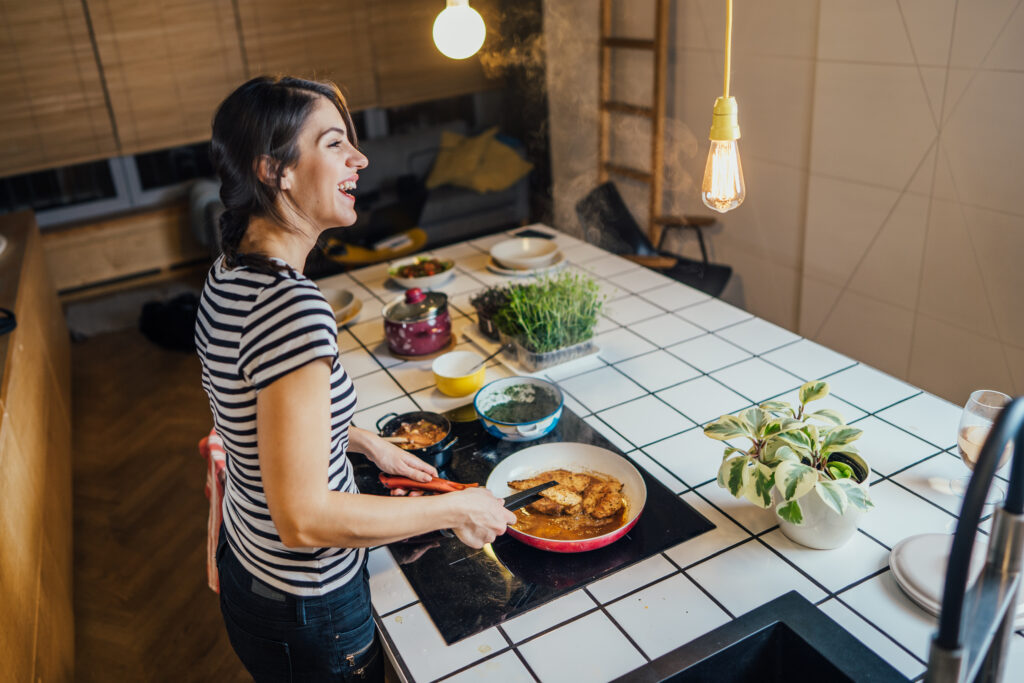
It may not be possible to account for every aspect of your custom home’s resale value. You may not even be able to imagine yourself ever selling it. But that day will come sooner or later, and it’s best to prepare for it now. The extra time you put into planning your home before you break ground will pay dividends for you — as a homeowner and a seller.
Reach out to us when you’re ready to start the conversation. Our team is ready to make your dream come to life.

